When it comes to producing precision metal parts, Aluminum Die Casting and Zinc Die Casting are two of the most trusted methods used across various industries. Both processes involve injecting molten metal into a steel mold or die under high pressure to create intricate and dimensionally accurate components. However, the performance, properties, and cost-efficiency of aluminum and zinc differ significantly.
Understanding the differences between aluminum and zinc die casting is critical when choosing the right material and process for your product design and industrial needs. In this article, we break down the key differences to help you make an informed decision.
Aluminum Die Casting uses lightweight aluminum alloys that are ideal for high-strength applications where weight reduction is essential. These alloys are commonly used in the automotive, aerospace, and electronics industries due to their high corrosion resistance and excellent thermal conductivity.
Zinc Die Casting, on the other hand, utilizes zinc alloys such as Zamak 3 and Zamak 5. Zinc is known for its superior dimensional accuracy, toughness, and the ability to create highly detailed components. Zinc Die Casting Manufacturers in India often prefer zinc for smaller, more intricate parts used in electronics, home hardware, and industrial components.
One of the most noticeable differences between these two materials is their weight.
In terms of strength, both materials perform well, but in different ways. Aluminum offers excellent tensile strength, especially at higher temperatures. Zinc offers high impact strength and is more malleable, which helps in complex molding and reduces the risk of cracking during casting.
Zinc Die Casting excels in producing parts with tight tolerances, thin walls, and fine details. The lower melting point of zinc (~420°C) allows for better flow into intricate mold designs, resulting in less need for secondary machining.
Aluminum Die Casting also produces precise components, but it may require additional post-processing to achieve the same level of detail and surface finish as zinc. This makes zinc more suitable for components where finish quality and dimensional precision are top priorities.
Aluminum is naturally resistant to corrosion due to the formation of an oxide layer on its surface. This makes Aluminum Die Casting ideal for outdoor or marine applications, as well as for parts that need to withstand high-temperature environments.
Zinc also provides good corrosion resistance, especially when coated or plated. However, zinc has a lower melting point, which limits its application in high-heat conditions compared to aluminum.
Cost is often a determining factor in material choice. While Aluminum Die Casting offers performance advantages in certain applications, it typically requires higher energy consumption and shorter tool life due to the elevated temperatures used in the process.
In contrast, Zinc Die Casting offers longer die life, faster cycle times, and lower overall production costs, making it a preferred option for high-volume manufacturing.
Aluminum Die Casting is commonly used for:
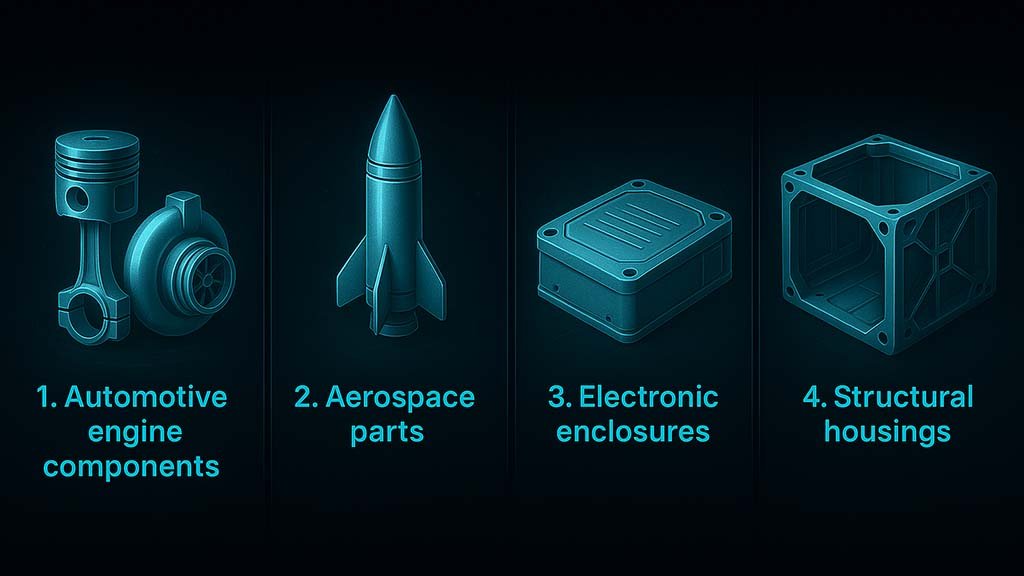
Zinc Die Casting is ideal for:
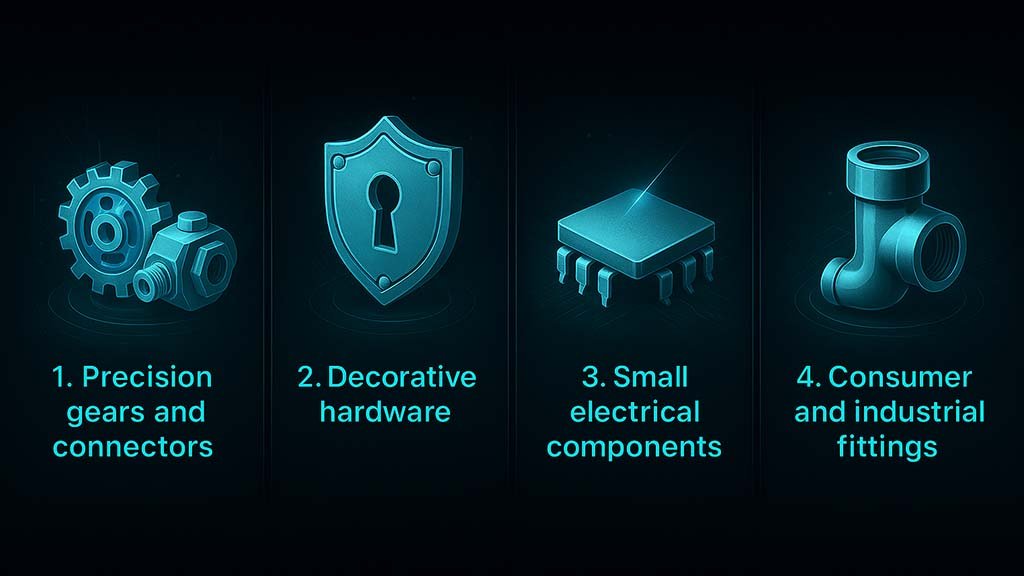
Both Aluminum Die Casting and Zinc Die Casting offer unique advantages that suit different industrial needs. When evaluating which to choose, consider factors such as part size, mechanical requirements, production volume, and budget.
For intricate, small, and cost-efficient parts, Zinc Die Casting is the way to go—especially when working with leading Zinc Die Casting Manufacturers in India. For lightweight, high-strength, and heat-resistant components, Aluminum Die Casting is the superior option.
Looking for a trusted partner for your casting needs? OME Verma Industries, a Leading Aluminium Die Casting Manufacturer in India, delivers high-quality solutions with precision engineering, advanced technology, and industry-proven expertise.
In the world of modern manufacturing, efficiency, precision, and cost-effectiveness are key factors when choosing the right production method. One such process that continues to gain popularity across industries is aluminium die casting. From automotive and aerospace to electronics and consumer goods, this method is widely adopted for its ability to produce complex, high-strength components at scale.
But is aluminium die casting the right fit for your specific manufacturing needs? In this blog, we’ll explore what makes this process so effective, its advantages, and how working with experienced aluminium die casting manufacturers can elevate your production capabilities.
Aluminium die casting is a process in which molten aluminium is injected into a steel mold — called a die — under high pressure. The metal then cools and solidifies to form a part that mirrors the exact shape of the mold cavity. Once cooled, the part is ejected, trimmed, and finished as needed.
This method is known for its ability to produce complex, highly detailed, and dimensionally accurate components with smooth surface finishes. Die casting manufacturers prefer this technique for high-volume production where consistency, speed, and strength are essential.
If you’re evaluating whether aluminium die casting fits your manufacturing goals, consider the many benefits it offers:
One of the biggest advantages of aluminium die casting is its ability to create intricate shapes with tight tolerances. It’s especially useful for parts that require fine details, thin walls, or internal features that would be difficult to achieve with other methods.
Aluminium is significantly lighter than steel or iron but still provides excellent strength and rigidity. This makes it ideal for industries like automotive and aerospace, where weight reduction improves performance and fuel efficiency without sacrificing durability.
Once the die is created, the casting process can produce thousands of identical parts quickly. This makes it highly efficient for large-scale manufacturing. The fast cycle times help reduce lead times and ensure quicker deliveries to market.
Parts produced by aluminium die casting usually have a smooth and clean surface, often requiring minimal finishing work. This is particularly important for visible components or those requiring painting, powder coating, or anodizing.
Aluminium forms a natural oxide layer that protects the metal from corrosion. This makes die-cast aluminium parts suitable for applications in humid, wet, or chemically exposed environments.
While the initial investment in tooling can be significant, aluminium die casting becomes increasingly cost-effective in high-volume production. The low per-unit cost, minimal material waste, and reduced need for secondary operations make it an economically sound choice.
Aluminium is 100% recyclable, and many aluminium die casting manufacturers use recycled aluminium in their operations. This makes the process more environmentally friendly while also helping to lower production costs.
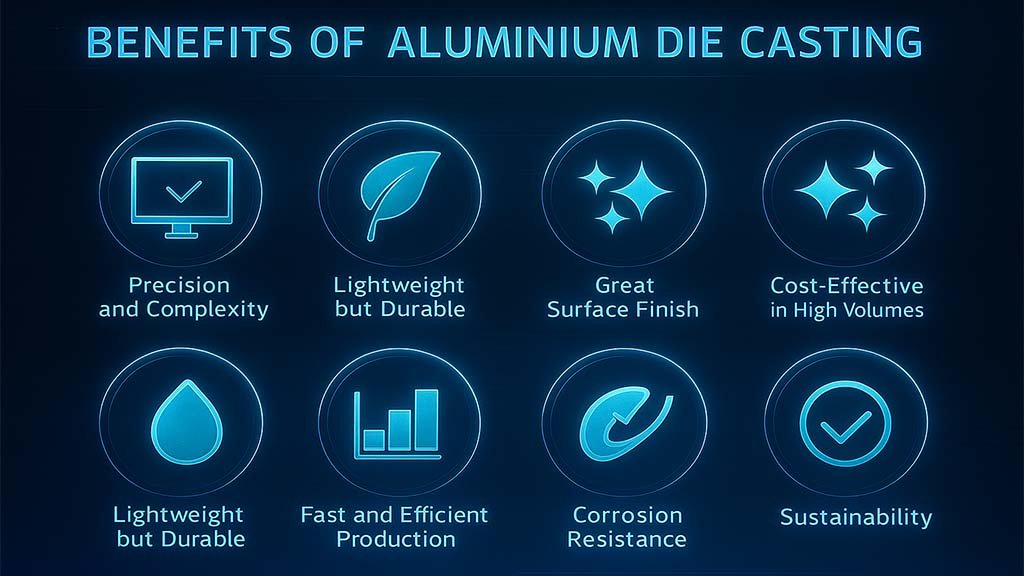
Aluminium die casting is ideal if your business requires:
However, if you’re producing very low quantities or oversized components, other processes like CNC machining or sand casting might be more appropriate.
Before deciding, it’s crucial to consult with experienced die casting manufacturers who can evaluate your project requirements and recommend the best approach based on design, volume, and budget.
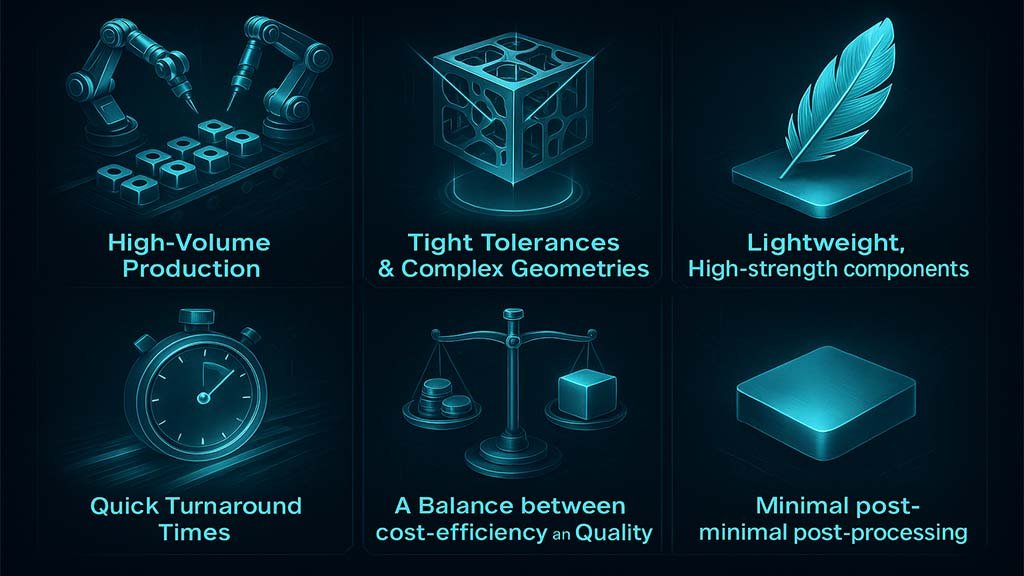
Choosing the right manufacturing partner is just as important as choosing the process. A skilled and experienced die casting manufacturer can help optimize your part designs, reduce costs, and improve overall product quality.
OME Verma Industries is one of the top aluminium die casting manufacturers in India, known for delivering high-quality die cast components across various sectors. With advanced facilities, cutting-edge machinery, and a commitment to precision, OME Verma Industries ensures your manufacturing goals are met efficiently and reliably.
If you’re considering aluminium die casting for your next project, reach out to OME Verma Industries — where innovation meets precision in every cast.
In the world of metal casting, Aluminum Die Casting and Zinc Die Casting stand out as two of the most widely used methods for producing precision parts with complex geometries. Each method has its unique advantages and limitations, making it crucial for manufacturers and designers to understand the core differences when selecting the right material and process for their application.
This article explores the pros, cons, and key differences between aluminum and zinc die casting, helping you make an informed choice for your manufacturing needs.
Aluminum Die Casting is ideal for applications requiring lightweight and high-performance components. Aluminum alloys such as A380 are frequently used for their excellent strength-to-weight ratio.


Zinc Die Casting is preferred for components that require high precision, intricate detail, and strength at thinner walls. Zinc alloys like Zamak 3 and Zamak 5 are commonly used in consumer electronics, automotive interiors, and industrial equipment.



The selection between Zinc Die Casting and Aluminum Die Casting largely depends on the specific application requirements:
For high-quality Zinc Die Casting and Aluminum Die Casting solutions, partnering with an experienced manufacturer ensures the best results. OME Verma Industries, a leading Aluminium Die Casting Manufacturer in India, delivers precision-engineered parts tailored to your needs with modern technology and quality assurance at every stage.
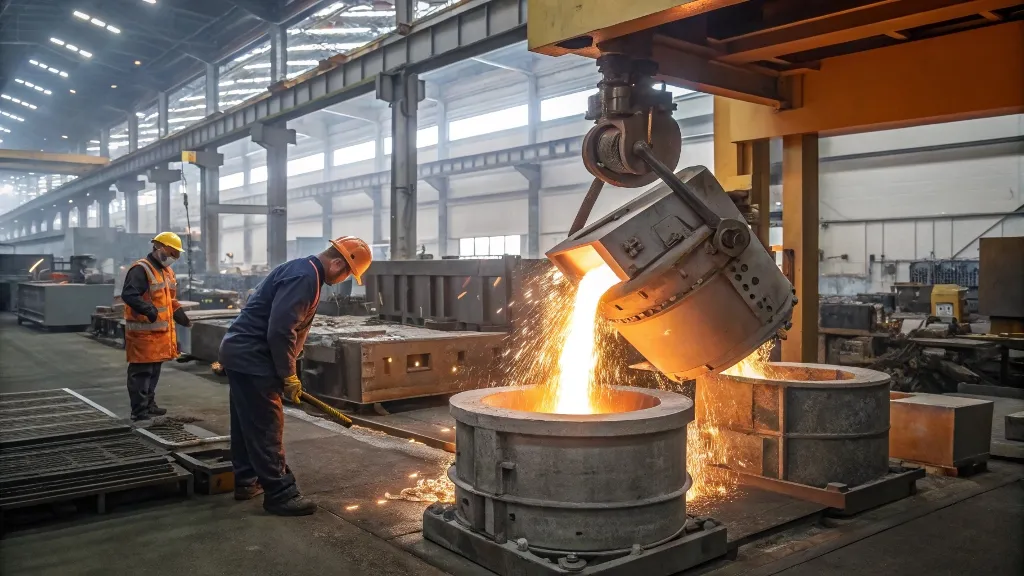
Aluminium die casting is a technique in manufacturing whereby molten aluminium is injected under great pressure into a steel mould. This produces very sophisticated and premium metal products with outstanding surface finishes. Many different sectors, including consumer goods, electronics, automotive, and aerospace, make extensive use of the method.
With an eye toward the keyword “Die casting manufacturer, die casting supplier, aluminum die casting manufacturers, aluminum casting manufacturers, and aluminum die casting manufacturers in India,” we shall investigate the realm of aluminum die casting manufacturers and suppliers in this article.
Companies specialized in the manufacturing of aluminum die cast parts are known as aluminum die casting manufacturers. These producers have the tools, knowledge, and experience required to create premium parts satisfying their client standards. Working closely with their clients, they grasp their needs and deliver them tailored solutions.
Aluminum die casting calls for multiple steps: mold design; melting and injecting molten aluminum into the mold; cooling and solidification; ejection of the part from the mold; finishing activities including trimming and machining. Manufacturers of aluminum die casting have the tools they need to do these actions quickly and precisely.
Among the best aluminium die casting companies worldwide are Dynacast International (USA), Nemak (Mexico), Ryobi Die Casting Inc. (Japan), and OME Verma Industries (India). These businesses serve a broad spectrum of sectors and are present all around.
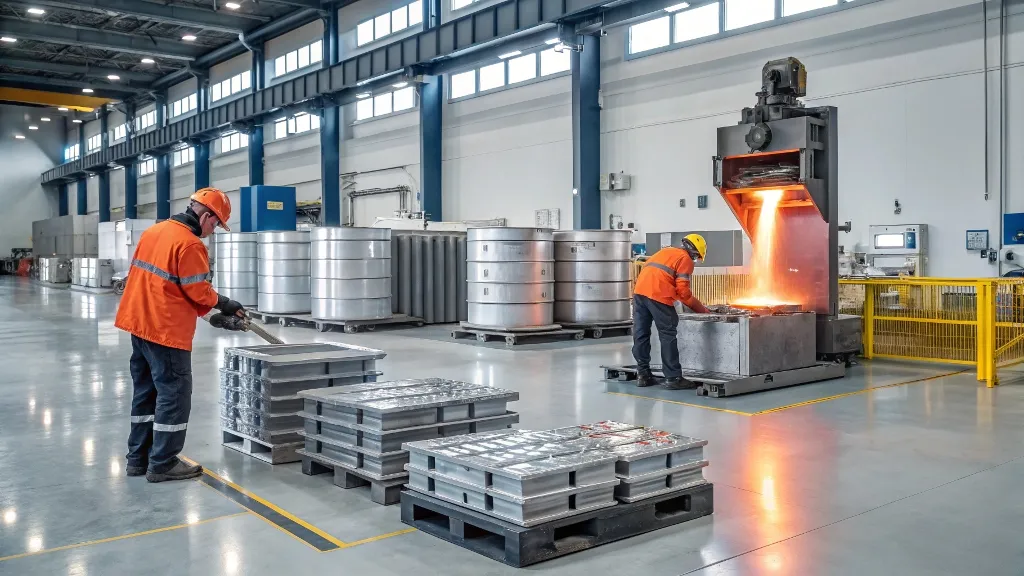
Companies who provide raw materials, tools, and services to aluminum die casting producers are known as aluminum die casting suppliers. Since they guarantee producers have access to premium materials and equipment, these vendors are absolutely vital in the manufacturing process.
Aluminum alloy is the main raw good used in aluminum die casting. Different grades of aluminium alloy with diverse qualities including strength, ductility, and corrosion resistance are offered by suppliers. Furthermore necessary for the die casting process are various supplies including lubricants, releasing agents, and coatings.
Apart from raw materials, suppliers also offer tools including die casting machines, molds, and cutting tools. Additionally provided are services including surface finishing, heat treatment, and mold creation and maintenance. Among the leading aluminium die casting providers are Alcoa (USA), Rio Tinto (Australia), and UACJ Corporation (Japan).
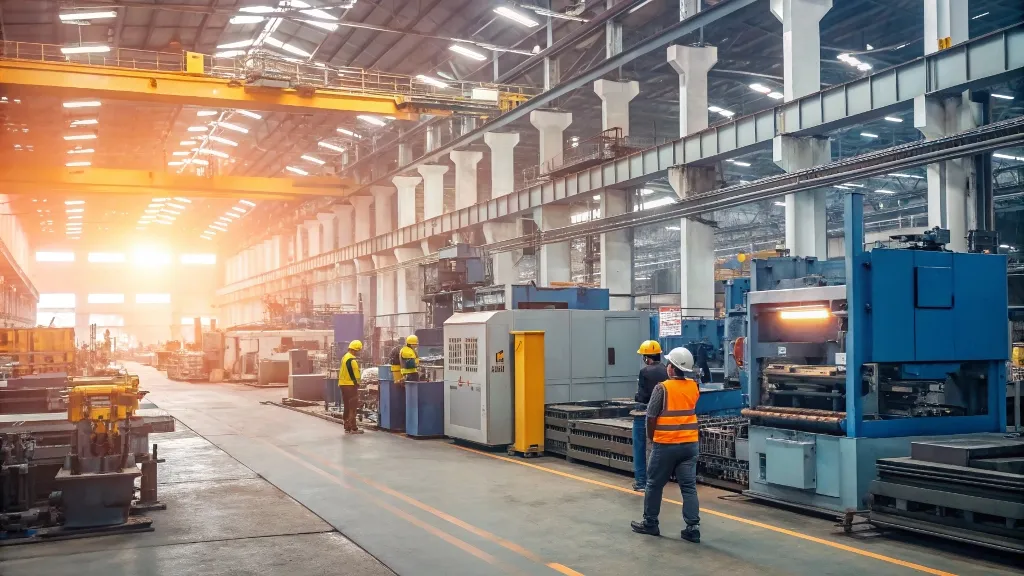
Among the top producers of aluminium die cast parts worldwide is India The nation boasts a developed manufacturing industry with superior technology and a trained workforce. Driven by the growing need for lightweight and fuel-efficient automobiles, the Indian aluminum die casting sector is predicted to expand at a CAGR of 8.5% between 2021–2026.
Among India’s leading aluminum die casting companies are Sipra Engineers Pvt. LTD., Sundaram Clayton Ltd., Rockman Industries Ltd., and Endurance Technologies Ltd. Modern facilities and adherence to international quality standards help these businesses provide premium parts for both home and foreign markets.
Popular among manufacturers since aluminum die casting provides many benefits over other manufacturing techniques. Among them Benefits are:
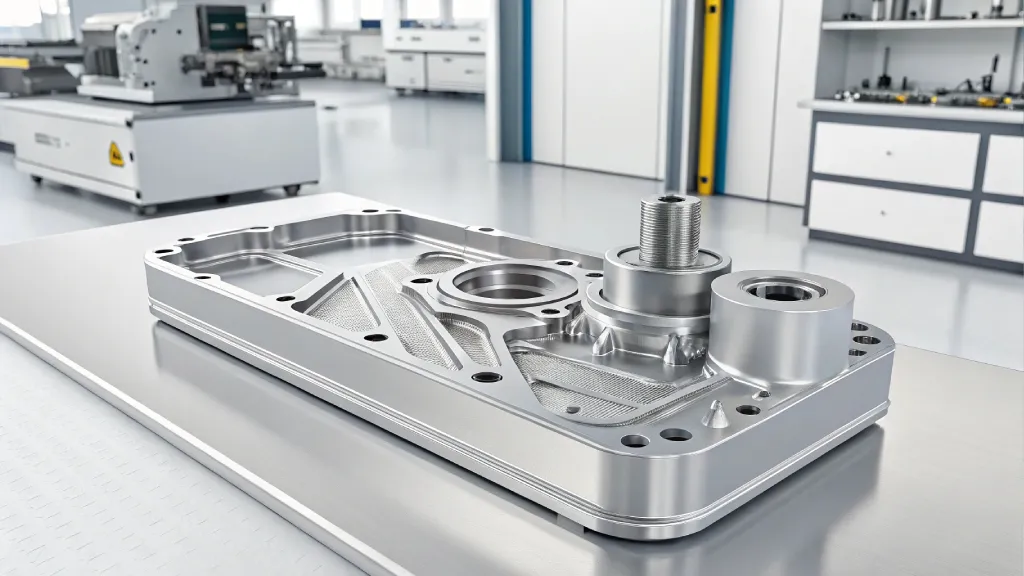
Aluminum die casting presents several difficulties for producers even with its several benefits. Among these difficulties is:
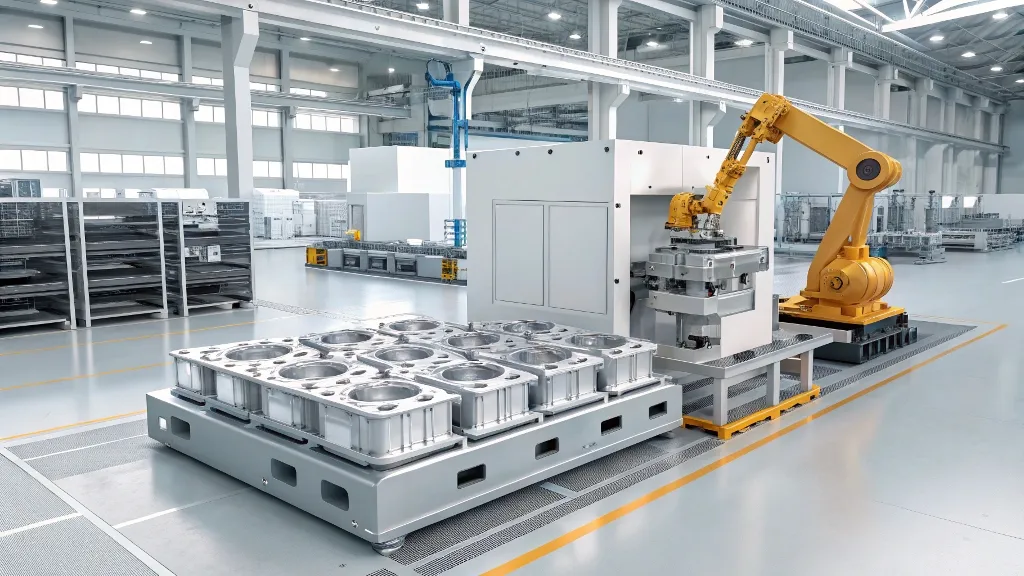
Aluminum die casting companies have overcome obstacles by means of many industry developments. These cover:
Vacuum assisted die casting, or VADC, is the technique whereby the air from the mold is evacuated prior to molten aluminum injection. This enhances the quality of the item by lowering porosity.
High-Pressure Die Casting (HPDC) is a modification of the conventional die casting technique whereby molten aluminum is injected into the mold under greater pressure. Stronger and denser pieces with less porosity follow from this.
Thin-wall die casting is a technique wherein thin-walled objects with wall thicknesses as low as 0.5mm may be produced. This qualifies for uses when weight reduction is absolutely vital.
Additives including strontium and titanium can help the molten aluminium to increase fluidity and lower porosity in die cast products.
One often used manufacturing technique with various benefits over other ones is aluminium die casting. A network of suppliers and manufacturers cooperating to generate premium parts for several sectors supports the sector.
The aluminum die casting business is projected to keep on its expansion path given the growing need for fuel-efficient and light-weight cars. To remain competitive in the market, producers must thus also solve the problems confronting the process and welcome innovations.

In the ever-evolving world of manufacturing, aluminium die casting has emerged as a cornerstone technology that continues to shape the modern products we rely on every day. From smartphones and vehicles to home appliances and medical equipment, this precise and efficient manufacturing method plays a crucial role in creating durable, lightweight, and complex components.
But what exactly is aluminium die casting, and why is it so influential in shaping today’s products?
Aluminium die casting is a process that involves injecting molten aluminium into a mold cavity under high pressure. These molds, known as dies, are typically made from hardened tool steel and are capable of producing thousands of identical castings with high dimensional accuracy and excellent surface finishes.
This method allows manufacturers to create complex shapes that would be difficult or impossible to achieve using other fabrication methods. The end result is a part that is strong, corrosion-resistant, and cost-effective—ideal for mass production.
Aluminium is one of the most widely used materials to create die casting products due to its excellent properties. It is lightweight, non-corrosive, and has good thermal and electrical conductivity. More importantly, aluminium can be easily recycled, making it an environmentally friendly choice for sustainable manufacturing.
Its lightweight nature makes it perfect for the automotive and aerospace industries, where reducing weight without compromising strength is crucial for improving fuel efficiency and performance.
Aluminium die casting is used across a wide array of industries. Some key applications include:
Die-cast aluminium parts are found in engines, transmissions, and structural components of vehicles. These parts help reduce vehicle weight and improve fuel efficiency without sacrificing safety or performance.
Die casting is used to manufacture heat sinks, enclosures, and housings for various electronic devices. Aluminium’s thermal conductivity ensures that devices remain cool and perform efficiently.
From kitchen appliances and power tools to lighting fixtures and smartphones, aluminium die casting allows designers to create sleek, durable products with a premium feel.
Precision and hygiene are paramount in the medical field. Die-cast aluminium components are used in diagnostic devices, surgical tools, and imaging equipment, offering strength and cleanliness in critical environments.

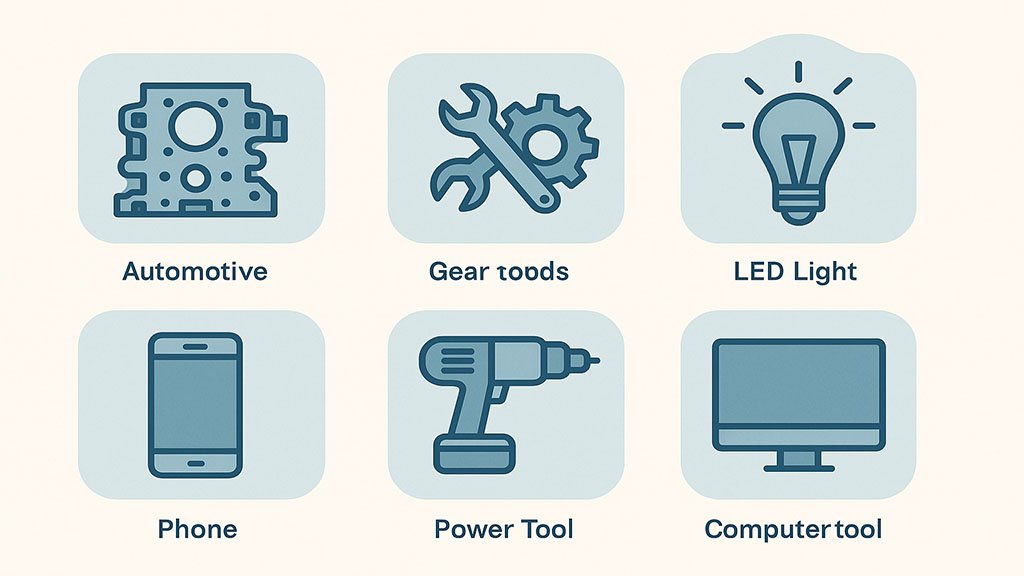
With advancements in technology, aluminium die casting is becoming even more efficient and precise. Innovations in simulation software, automation, and material science are driving the industry forward, allowing for even greater design flexibility and shorter production timelines.
As industries push for more sustainable and lightweight solutions, aluminium die casting is expected to play an increasingly important role. The demand for electric vehicles, for instance, is accelerating the need for lightweight aluminium parts to maximize battery performance and vehicle range.
When it comes to aluminium die casting, the quality of the final product depends significantly on the expertise and technology of the manufacturer. For businesses seeking reliable and high-quality aluminium die casting solutions, partnering with a trusted manufacturer is essential.
OME Verma Industries is one of the leading aluminium die casting manufacturers in India, renowned for its commitment to quality, innovation, and customer satisfaction. With state-of-the-art facilities and a highly skilled team, OME Verma Industries delivers precision-engineered components that power the products of tomorrow.
Whether you’re developing cutting-edge electronics, automotive parts, or industrial machinery, OME Verma Industries is your trusted partner for all aluminium die casting needs.

The casting of aluminum dies is a very basic process, and it forms the backbone of most other industries, including the automotive electronics industry and aerospace. Those in search of Aluminium Die Casting in Delhi, or finding genuine Aluminium Die Casting Manufacturing in Delhi, we at OME Verma Industries, are ready to take you through the very basics of this process, and why we must be chosen as your partner due to the best decision you can ever make.
In aluminum die casting, liquid metal is forced into a mold of steel, or die, at very high pressure. Very complicated, highly precise pieces of metal are produced that are essential in those industries that need parts to be solid, lightweight, and resistant to corrosion. The speed of the process makes it an effective way to create many high-quality parts.

Delhi is the busy capital of India and is also an important industrial center. Located strategically, Delhi is also variously well-endowed with infrastructural facilities, which makes it an apt place for the industry of Aluminium Die Casting Manufacturer in Delhi The proximity to major markets, coupled with the easy availability of skilled manpower, makes it an ideal location for manufacturers and suppliers like us, OME Verma Industries.

1) Used to make engine blocks, gearboxes, and parts of transmission.
2) Fuel efficiency is increased as aluminum is a lightweight material.
3) It meets rigorous government guidelines and market expectations.
1) Produces enclosures, heart sinks, and connectors with high thermal facility.
2) Intricate designs that are critical for modern electronic appliances can be performed.
3) The accurate fitting and reliable functioning of the parts.
1) Manufactures lightweight, structurally stiff brackets and housings.
2) Decreases the weight of aircraft, which increases fuel efficiency and performance.
3) Impact resistance and Corrosion resistance properties in extreme environments.
1) Precision instrumentation and equipment parts.
2) The high dimensional accuracy that many medical devices depend on to work is provided for.
Lightweight: The feature of low density extends the usage of aluminium making it ideal for applications in the automotive and aerospace industries.
Durability: The properties of the material like the strength and hardness of aluminum mean that the parts we manufacture can endure almost any environment.
Corrosion Resistance: Aluminium products itself is a member of the impedance to corrosion meaning that our die-cast products will last longer.
Cost-Effective: This, coupled with the effectiveness of aluminum die casting makes it ideal for use in large-scale production since it is cheap.
Aluminum die casting is an essential manufacturing step, that meets the requirements of several industries offering high strength, durability, and reasonable prices for the components. This industry is all established in Delhi due to certain tactics, and we at OME Verma Industries are one of the premier Aluminium Die Casting manufacturers in India.
